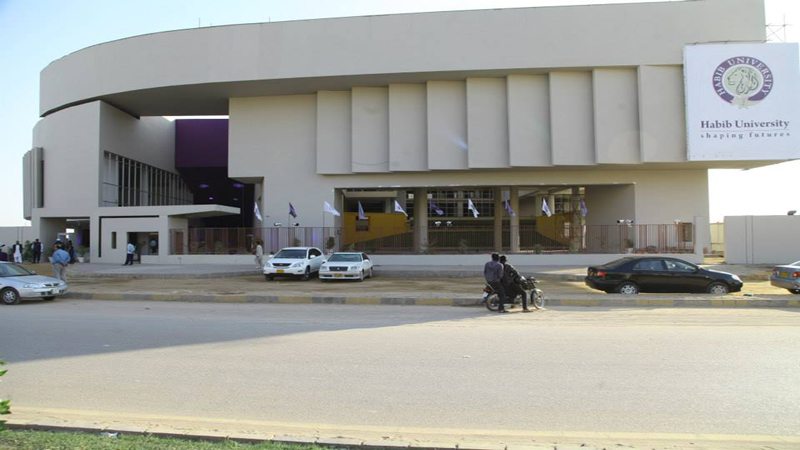 KARACHI: For this year’s flagship Yohsin Lecture at Habib University, Harvey Mudd College president Dr. Maria Klawe was invited to speak on Tuesday to a packed auditorium on The Importance of a Broad Education.
KARACHI: For this year’s flagship Yohsin Lecture at Habib University, Harvey Mudd College president Dr. Maria Klawe was invited to speak on Tuesday to a packed auditorium on The Importance of a Broad Education.
Dr Klawe, a leading computer scientist in the world, said that an education based on a diverse range of subjects did not only enabled students to make better career choices but also prepared them to come up with better solutions to the world’s problems. Besides, she said, studying a diverse array of subjects was the sure shot way of making students better human beings.
Dr Klawe has significant contributions in several areas of mathematics, theoretical computer science, and human-computer interaction throughout her more than 20-year academic career. She has served as the dean of Engineering Faculty at Princeton University. For her contributions to the field, she was named at 17 in the Fortune’s 2014 List of the World’s 50 Greatest Leaders.
During her talk, Dr Klawe gave examples of success stories of a trans-disciplinary education. Among other aspects, she said such an education was needed to facilitate and build teams that could succeed in addressing complex social issues, including some of those faced by Pakistan such as energy crisis and labour migration. “Learning is something humans do individually as well as socially […] The most highly sought after professionals are those who can combine human skills, social interactions, with an understanding of automation,” she said, adding that trans-disciplinary education nurtured creativity and problem-solving skills. She also spoke about the role of teachers in this process, saying, “When you both frame what you’re trying to accomplish and also provide recognition with words for accomplishing those goals, that’s what makes it [education] work.” She encouraged educational institutions to think about the most fundamental question: why we pursue education. “You need to develop the experience of overcoming a challenge. […] I feel strongly about an error in our society where we equate ease of learning with ability to become the best.”
Prior to her academic engagements, Dr Klawe also worked with the IBM’s research unit. Throughout her time at IBM, she made it a point to advocate for and facilitate women working and being recognised in hard sciences. As a leading computer scientist, she says she is constantly working for ways to help women and girls in predominantly male-dominated fields. “It is important for everyone to take on subjects and areas that terrify them at first. When you pick up something that is difficult to tackle, that is when you grow the most […] Being male or female does not matter as far as computer science is concerned, because employability is high for graduates regardless of their genders. The applicability of computer science these days is ubiquitous, no matter whether you enjoy painting like me, or music, biology, or development.”
“The rule is, you will encounter discrimination and people not believing in you all over the place, and you just have to learn to deal with it.”
During her current visit to Habib University, Dr Klawe interacted with students, faculty and the Board of Governors. Reflecting on these interactions, she said, “I am stunned to see such a young institution doing so well, it is a joy to get to know the people at Habib University. That’s what Habib and Harvey Mudd have in common – it’s about the people.”
Earlier Yohsin Lectures have featured Vali Nasr, the dean of the Johns Hopkins School of Advanced International Studies; and Deborah Fitzgerald, the former dean of the MIT School of Humanities.
Published in Daily Times, February 21st 2018.